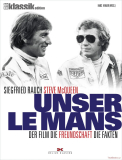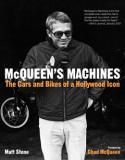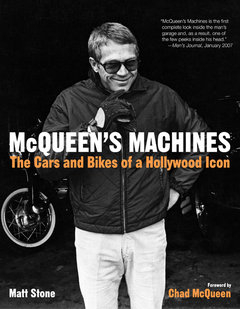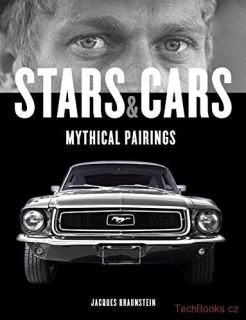E-shop
- * CD/DVD/BLU-RAY
- * Dárkové poukazy
- * Kalendáře
- * Magazíny
- * NAVIONICS
- * Plakáty a grafické listy
- * Prospekty a brožury
- * Slovníky
- ATV, čtyřkolky, sněžné skůtry
- Autobusy, tramvaje, trolejbusy
- Automobily osobní a dodávky
- _Automobilová technika
- _Autokatalogy
- _Caravaning
- _Design
- _Elektromobily & hybridy
- _Karosárny & karosáři
- _Osobnosti & konstruktéři
- _Repliky / kitcars / stavby
- _Sbírky a muzea
- _Sport
- _Veteráni
- Abarth
- AC
- Acura
- Adler
- Aero
- Africar
- Alfa Romeo
- Allard
- Allstate
- Alpine
- Alvis
- AM General
- AMC
- Americké automobily
- Armstrong Siddeley
- ARO
- ASA
- Aston Martin
- Auburn
- Audi
- Austin
- Austin-Healey
- Austro-Daimler
- Auto Union
- Autobianchi
- Ballot
- Bantam
- Barkas
- Bedford
- Bentley
- Benz
- Berkeley
- Bitter
- Bizzarrini
- BMW
- Bond
- Borgward
- Brabham
- Bricklin
- Bristol
- British Leyland
- BRM
- Brough Superior
- BSA
- Bugatti
- Buick
- Cadillac
- Callaway
- Caterham
- Citroen
- Cisitalia
- Clan
- Colt
- Cord
- Crosley
- Crossley
- Cunningham
- Dacia
- Daewoo
- DAF
- Daihatsu
- Daimler
- Dallara
- Darracq
- Datsun
- De Dietrich
- De Dion
- Delage
- Delahaye
- DeLorean
- Denzel
- DeSoto
- De Tomaso
- Diatto
- Dixi
- DKW
- Dodge
- Duesenberg
- Eagle
- Edsel
- Elva
- EMW
- ERA
- Excalibur
- Facel Vega
- Falcon
- Ferrari
- Fiat
- Ford
- Ford USA
- Frazer-Nash
- FSO Fiat Polski
- General Motors
- Genesis
- Geo
- Ginetta
- Gilbern
- Glas
- GMC
- Goggomobil
- Goliath
- Gutbrod
- Hanomag
- Hartnett
- Healey
- Henney
- Hillman
- Hino
- Hispano Suiza
- Holden
- Hommell
- Honda
- Horch
- Hotchkiss
- Hudson
- Humber
- Hummer/Humvee
- Hyundai
- Checker
- Chevrolet
- Chrysler
- Chrysler Europe
- IFA
- Imperial
- Infiniti
- Innocenti
- Intermeccanica
- International
- Invicta
- ISO
- Isotta-Fraschini
- Isuzu
- Itala
- Iveco
- Jaguar
- Jeep
- Jensen
- Jowett
- Kaiser-Frazer
- Karmann
- KdF
- Kia
- Lada/VAZ
- Lagonda
- Lamborghini
- Lancia
- Lanchester
- Land Rover
- Laurin-Klement
- La Salle
- Lea-Francis
- Lexus
- Light Car Co.
- Ligier
- Lincoln
- Lloyd
- LMX
- Locomobile
- Lola
- London Taxi Intl.
- Lotus
- Marendaz
- Marcos
- March
- Marmon
- Maserati
- Matra-Simca
- Maybach
- Mazda
- McLaren
- Mercedes-Benz
- Mercury
- Messerschmitt
- Metalex
- MG
- Mini
- Mitsubishi
- Monica
- Monteverdi
- Moretti
- Morgan
- Morris
- Moskvič
- Muntz
- Nash
- Nissan
- Noble
- NSU
- Oldsmobile
- Oltcit
- Opel
- OSCA
- Packard
- Pagani
- Panhard
- Panoz
- Panther
- Peerless
- Pegaso
- Peugeot
- Park Ward
- Pierce-Arrow
- Plymouth
- Pontiac
- Porsche
- Praga
- Puch
- Puma
- Rambler
- Range Rover
- Reliant
- Renault
- Proton
- Railton
- Riley
- Riva
- Rochdale
- Rolls-Royce
- Rover
- Röhr
- Saab
- Saturn
- Scioneri
- Seat
- Shelby
- Schustala
- Simca
- Singer
- Smart
- Spyker
- Standard D
- Standard GB
- Stanguellini
- Steyr
- Studebaker
- Subaru
- Stutz
- Sunbeam
- Suzuki
- Swallow
- Syrena
- Škoda
- Talbot
- Tarpan
- Tatra
- Terraplane
- Tesla
- Tojeiro
- Toyota
- Trabant
- Trident
- Triumph
- Tucker
- TVR
- Tyrrell
- UAZ
- Unipower
- Vanwall
- Vanden Plas
- Vauxhall
- Vector
- Venturi
- Voisin
- Volha / GAZ / Čajka
- Volkswagen
- Volvo
- Walter
- Wanderer
- Wartburg
- Warszawa
- Wiesmann
- Wikov
- Westfield
- Williams
- Willys
- Wolseley
- Yugo/Zastava
- Zagato
- ZAZ
- Zbrojovka
- ZIL
- Zimmer
- Automobily nákladní a tahače
- Cyklistika
- Hudební nástroje, hudba
- Letectví, kosmonautika
- Lodě, lodní technika
- Malá motorová technika
- Modely a sběratelství
- Motocykly
- Počítače, IT
- Traktory, zemědělská technika
- Železniční technika, vlaky
- Zbraně, vojenská technika
- Zdraví, domácnost, sport


![]()



![]()


![]()

![]()

![]()



Úvod »Automobily osobní a dodávky»Jaguar » Steve McQueen: Le Mans in the Rearview Mirror
Anotace
| Vazba: | Vázaná | ||
| Počet stran: | 256 | ||
| Rozměry v mm: | n/a | ||
| Počet obrázků: | 422 | ||
| Rok vydání: | 2017 | ||
Let me say it right off the bat: the idea of writing an entire book on the making of Le Mans 45 years after the fact has me somewhat stymied. The fact that I'll be revisiting, reliving and delving into a movie that was a critical failure and box-office disappointment at the time of its release -- and a miserable experience for everyone involved, to boot (most especially its star, Steve McQueen, who called it “a bloodbath”) is strange, to say the least. But who am I to argue with pop culture history? As it stands, Le Mans is the most discussed, debated, examined and beloved auto racing film of all time, which is absolutely mind-boggling if you go back and read all the initial reviews of the movie. But ask any motoring aficionado what is his favoring racing pic of all-time, and I guarantee you that nine times out of ten it will be Le Mans with an exclamation point.
So, who am I to speak with such authority on the topic? My name is Don Nunley, and I was the propmaster on Le Mans. While authors, documentary filmmakers, motoring scribes and racing enthusiasts have told and retold the story of Le Mans for decades – and for the most part they got right – I was actually right there as it all unfolded. There was nothing positive to say about the 106-minute motion picture at the time we started making it in June 1970. Six months later when filming mercifully ended, there was no wrap party, no toasts, no grand farewells; everyone just quietly went away, thanking God their ordeal was finally over.Steve McQueen was a real life racing fanatic, and Le Mans was supposed to be his cinematic dream come true. But the movie left him with bitter feelings and lasting emotional dents in his armor. There were conflicts with directors, personal excesses, budget woes, a war with the studio, a shutdown, months of delays, an unfortunate accident that left one driver without a leg, and rumors that the production company hushed up the death of a second unit crew member. In one fell swoop, McQueen ended a 15-year marriage, severed ties with his longtime agent and producing partners, did away with his production company and lost a personal fortune, not to mention control of the passion project he had planned to make for over a decade.
It has taken me years to understand and digest the complex phenomenon of Le Mans, which decades after its crash-landing at the box office and savaging by critics has finally found its vindication and the approbation its star dreamed of before things took such a wrong turn when the cameras started rolling. Steve McQueen would be blown away to see that Le Mans has left an indelible legacy in the auto racing world and movie industry.























